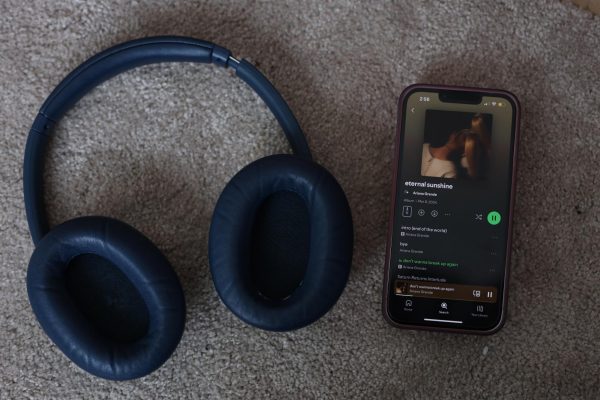Rod Wave Stuns With Third Studio Album “SoulFly”

Rod Wave exposes his pain on “Soulfly.” (Courtesy of Twitter)
“If you can’t feel my pain, this ain’t for you anyways,” Rod Wave boldly declares on his third studio album “SoulFly.” You don’t have to be sad to feel that pain. Hearing Wave’s soulful voice alone is enough to make his pain palpable to anyone listening.
Though he is completely vulnerable for the entirety of the project, pain isn’t the only subject Wave covers on “SoulFly.” Over the project’s 19 tracks, he discusses life growing up on the streets, betrayals he’s faced as an adult and his struggle to stay true to himself amidst his newfound fame.
The project begins with the title track on which Wave envisions a world where he doesn’t have to feel pain. Referencing the moment he will finally find peace when he goes to Heaven, he sings, “They say it won’t be long, all I want / Is when the horn blows and when they all cry / I pray my soul flies, pray my soul flies.”
On the third track, “Don’t Forget,” Wave reminisces on the struggles he faced growing up on the streets, saying, “And don’t you ever get it twisted / Youngin’ come straight from out the trenches.” Those times shaped who Wave is today, and despite his newfound money and fame, he is proud of his upbringing and wants to make it clear he hasn’t changed. The more upbeat melodic guitar instrumental on this track is incredibly successful in accentuating Wave’s self-confidence and the emotion in his voice.
Wave’s pain is most evident in “Tombstone,” where he builds on the theme of finding peace in death that he established in the intro. It’s almost impossible not to feel Wave’s pain as he cries, “By the river, they will carry me / Finally, I’ll be resting in peace / Finally, finally / I’ll get to fly away, somewhere, someday.” And if Wave’s voice alone wasn’t enough, the gospel choir that joins him on the chorus is sure to give listeners chills as he sings about his dream of flying away and escaping his pain.
Wave temporarily puts his pain aside on “Richer,” though. Alongside Chicago rapper Polo G, he raps about his newfound affluence and pride in the fact that he beat the odds. Polo G lives up to the pressure of being the album’s only feature as his signature rap flow provides a welcome contrast to Wave’s soulful R&B style.
The break from pain doesn’t last long, though. Despite saying he’s “richer than he’s ever been,” Wave reveals the money hasn’t healed his hurt on “Pills & Billz.” He opts for more of a trap flow on this track’s chorus, saying, “Money can’t buy you happiness, and it can’t buy you, love.” In the chorus, he gets honest about the dark side of being so vulnerable with his emotions, rapping, “F— a label and they games, he a slave in they chains / They give champagne when it rain, they took his pain to the bank.”
Wave shows off a softer side of his voice on the following tracks. On the interlude “What’s Love??,” his voice feels effortless yet heartbroken at the same time as he almost whispers, “What’s love to a broken heart?”
On the outro, “Changing,” Wave brings the album full circle, returning to the theme of finding peace. He lays out all his emotions, crying, “But I can’t find no peace / Lord, I got a question, is Heaven real? / If so, then why you kept us here?” The production on the track is a perfect close to the project, with the interplay between the melancholic piano and soul-filled electric guitar reflecting Wave’s pain and hope to find peace.
Wave may be rapping about pain, but whether or not you can relate to the sadness he feels, “SoulFly” is worth the listen. The production alone is enough to earn the project a play, and when you add in his stunningly heartbroken voice, Wave takes listeners’ souls on a journey of their own as they fly to a different dimension.










































































































































































































